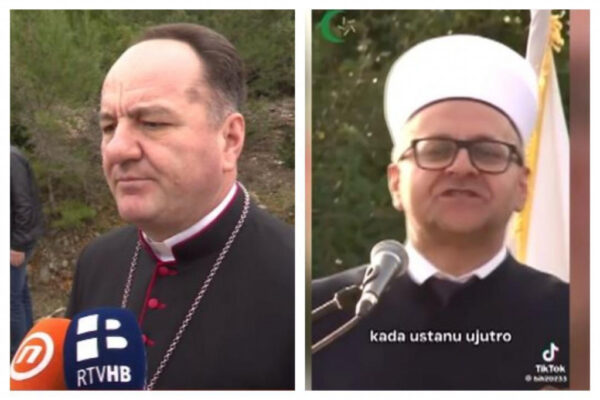 The Mostar Episcopal Ordinariate sharply condemned the speech against religious symbols, emphasizing that such comments, especially when coming from representatives of the majority religious community, signify exclusivity and an insult to all those for whom these symbols hold value.
The Mostar Episcopal Ordinariate sharply condemned the speech against religious symbols, emphasizing that such comments, especially when coming from representatives of the majority religious community, signify exclusivity and an insult to all those for whom these symbols hold value.
The statement highlights that the cross is a common symbol for all Christians, regardless of whether they are Catholics, Orthodox, or Protestants.
“Such rhetoric, spoken by anyone, but especially in these challenging times and in this country still healing from war wounds, unfortunately opens new spaces for intolerance and hatred, undermines the foundations of Dayton’s Bosnia and Herzegovina, and complicates any dialogue and struggle for common interest,” the statement reads, as reported by RTV Herceg Bosne.
The Episcopal Ordinariate also explains that Islam has many dimensions – spiritual, social, legal-political – and that no one denies the possibility of engaging in politics if it aligns with a particular faith and preaching. However, in democratic societies, such as European ones that Bosnia and Herzegovina aspires to emulate, one must be ready for criticism of their actions and everything they represent, including the religious community itself.
The statement concludes: “We will continue to preach Christ crucified, whose words of love and forgiveness resonate from the cross at Golgotha to the cross at Hum: ‘Forgive them, Lord, for they do not know what they are doing!’ And God created man so wonderfully, with outstretched arms pointing directly to the cross, a symbol of selfless love, sacrifice, and forgiveness.”